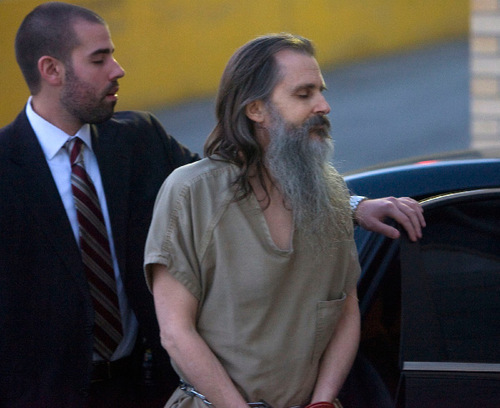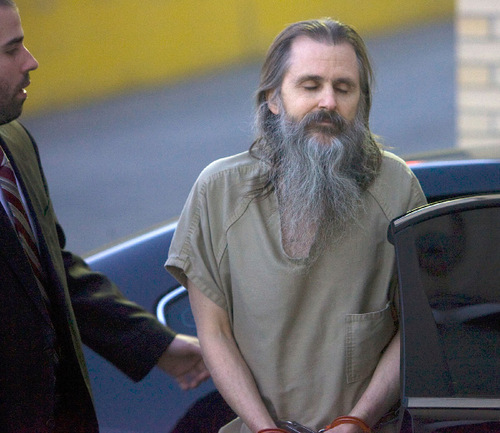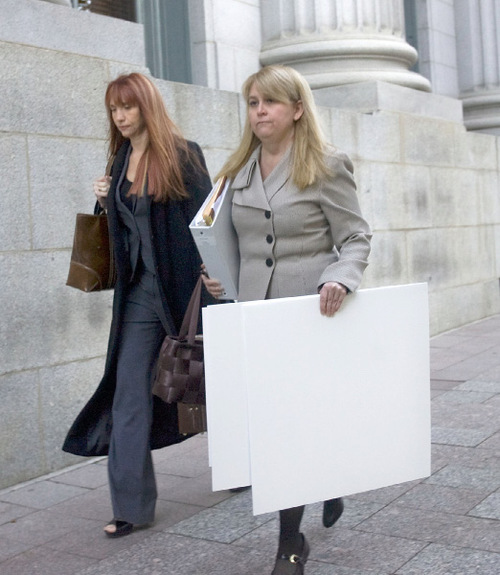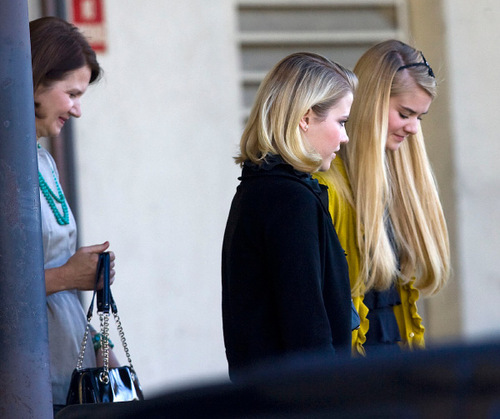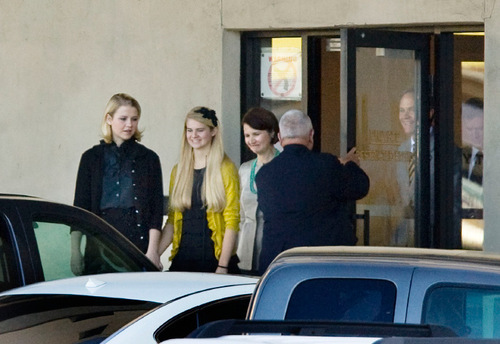This is an archived article that was published on sltrib.com in 2010, and information in the article may be outdated. It is provided only for personal research purposes and may not be reprinted.
The trial of Brian David Mitchell ground to a sudden halt in the middle of opening statements.
The 10th Circuit Court of Appeals granted a stay to consider the defense's request for a change of venue.
"I am of course very unhappy with this," said U.S. District Judge Dale Kimball, who is presiding over the trial. "I have to do what the 10th circuit says. I don't know what they'll do when they consider it, but for today we're in recess for this matter. I'm very sorry."
The trial was halted after the defense team filed a petition asking the 10th U.S. Circuit Court of Appeals in Denver to order the case transferred out of Utah.
The petition argues that people who already have decided Mitchell is guilty were seated on the jury.
The defense in the petition alleged that "the only possible way that the district court has been able to seat a jury in this venue ... was by discounting the significance of a juror's actual bias as to Mr. Mitchell's guilt."
The petition claimed that the only potential jurors removed from the jury pool were the ones who indicated they would shift the burden of proof to the defense.
Asked if he was encouraged by the delay, defense attorney Parker Douglas — who was three minutes into his opening statement when the trial was stopped — said, "I don't know that anyone would be encouraged, being stopped in the middle of opening arguments," he said.
Defense attorney Wendy Lewis said, "I'm disappointed it was issued after we started ... It's not something I've seen happen before."
The U.S. Attorneys Office declined to comment.
The 10th Circuit asked for each side to file its briefs in the matter by 11:59 p.m. Thursday. —
Jury seated
A nine-man and five-woman jury was seated Thursday morning in the trial of Brian David Mitchell, and opening arguments began shortly after.
Jurors 1, 7, 14, 15, 28, 32, 33, 34, 37, 39, 41, 42, 44 and 48 were chosen. Two of them are alternates.
U.S. District Judge Dale A. Kimball instructed the jury not to consider any evidence not presented in court, and said there are "three basic rules" in a criminal case.
The defendant is "innocent until proven guilty. The indictment is only an accusation, not a proof of guilt. And the defendant starts out with clean state. The burden of proof on government until the end of the trial, and it must prove guilt beyond a reasonable doubt."
They were also instructed that the burden of proof of insanity is on the defendant "by clear and convincing evidence."


